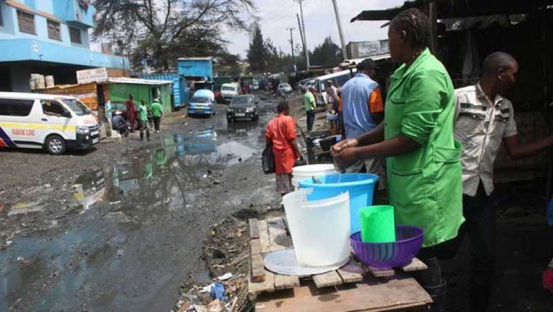×
The Standard e-Paper
Fearless, Trusted News

Last week cholera killed at least three people in Kisumu with over 30 being treated after contracting the deadly disease. Before Kisumu, dozens of Nairobians including two Cabinet Secretaries had similarly contracted the disease.
The obvious fact that the disease is no respecter of status was the key focus of most news reports. What should however not be lost in all these is that there is more to cholera than meets the eye. Unless we dig deeper and unearth the root causes of this disease, we remain sitting ducks.